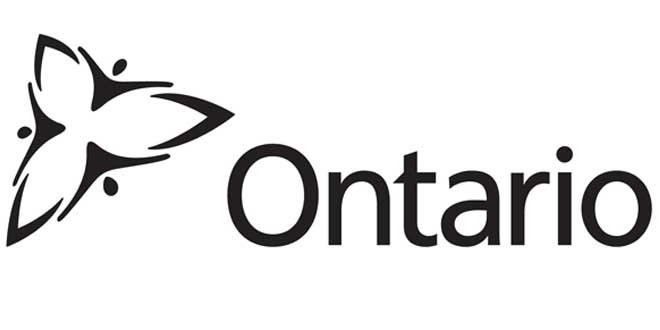by Wayne Hunt
The decision by the UK electorate to leave the European Union, the so-called Brexit, has been one of the most significant geopolitical events of our time. It continues to be interpreted in many ways but one significant fact needs to be underscored in all of the post-referendum analysis: too many people have been left behind by the processes of globalization and these same people have expressed their discontent at the ballot box. Brexit has acted like a hurricane—tearing through the political landscape of Europe before moving to other destinations. So far, Britain has been at the epicenter. The key political figures in the debate have departed. First, the prime minister who unwisely decided to call for a referendum in order to place Euroscepticism within his party ranks resigned. David Cameron’s decision to step down in October was followed by the decision of his chief rival, Boris Johnson, not to run for the leadership. Then the leader of the UK Independence Party, Nigel Farage, decided to call it a day.
This same concern with globalization underscored President Obama’s address to Canada’s parliament. Obama spoke against those who would preach protectionism and xenophobia. He acknowledged that in the new, knowledge-driven economy, there would be winners and losers but as he put it, ordinary working families should have the means to allow their sons and daughters to have a good shot at a decent life. As he said, “If our democracies seem incapable of assuring broad-based growth and opportunity for everyone, then people will push back out of anger or out of fear”. And “politicians—some sincere and some entirely cynical—will tap that anger and fear, hearkening back to bygone days of order and predictability and national glory, arguing that we must rebuild walls and disengage from a chaotic world, or rid ourselves of the supposed ills brought on by immigrants, all in order to regain control of our lives.”
Others have been even more forthright about what governments can do to give a fighting chance to those parts of their population who are on the wrong side of globalization. Writing in the New York Times on June 29, 2016, Thomas Friedman opined that this decision to quit the EU as the European Union is known, “is not the end of the world—but it does show us how we can get there.” For Mr. Friedman, this is the big story of our time, one in which the pace of change in technology, in globalization and in planetary climate cycles has outrun the ability of our political systems to build the community-based workplace and educational innovations to allow each and every one of our citizens to keep up. As he noted, we “have globalized trade and manufacturing, and we have introduced robots and artificial intelligence systems, far faster than we have designed the social safety nets, trade surge protectors and educational advancement options that would allow people caught in this transition to have the time, space and tools to thrive.” At the same time, we have opened borders. Therefore, we have “experienced the influx of illegal migration from failing states at an unprecedented scale.” This too has left people feeling “that they are losing their ‘home’ in the deepest sense of the word.” Mr. Friedman observed that this is happening first of all in Europe but it may soon spread to places like the United States. But underneath it all, the real issue might not be immigration at all: it is integration. How do you create the social, cultural, political and economic conditions that allow people of diverse backgrounds to accept each other?
This is the question that peoples in nation-states across the globe have to ask. The undisputed fact here is that nationalism is on the rise—a point made clear by the way the vote on Brexit broke across the UK: Scotland voted 62 percent to 38 percent to stay in the European Union, while in Northern Ireland the vote went 55.8 percent to 44.2 percent. At first blush, the Scottish result would seem to advantage Nicola Sturgeon, Scotland’s first minister. Ms. Sturgeon reacted swiftly to the vote, tasking a panel of non-partisan experts to advise her on how to remain inside the UK. The panel will set out the options in a stark form giving her the advice that she has already massaged them to give her: that Scotland will need to become independent from the UK in order to keep its present place in the European Union. But this will not be easy. Spain will try to trip things up because they do not want to encourage Catalans from declaring their own independence in their country. And then there are political considerations within Scotland. Joining a currency like the Euro will not be an easy sell. And having borderless travel to Scotland from other parts of Europe might not be an easy sell either. Scotland’s timing on these matters will have to coincide with the decision by authorities in Westminster to invoke Article 50 of the Treaty of Lisbon. This treaty sets a formal two-year period on the negotiations for the UK to secede from Europe. British authorities want breathing room before this is invoked and are waiting until the Tory party chooses a new leader in the fall. Bookmakers have Theresa May as the odds-on favourite to win but in these anarchic circumstances, nothing can be taken for granted. Ms. May is seen as colorless and lacking in vision but in truth, the problem runs deeper and has to do with the fact that the regular, mainstream political parties in North America and in Europe do not seem to embody an underlying philosophy that fits the requirements of a twenty-first century world. Political events are being shaped by deeper economic forces.
Capitalism, or the way that we organize economic relations in our society is changing. Using a satirical approach, the website True Activist put the problem with our present system in these terms: “With traditional capitalism you have two cows. You sell one and buy a bull. Your herd multiplies and the economy grows. You sell them and retire on the income.” Easy peasy. But now something else has happened. “With today’s capitalism we still have two cows. You sell three of them to your publicly listed company using letters of credit arranged by your brother-in-law at the bank. You then execute a debt-equity swap with an associated general offer. You get all four cows back, with a tax exemption for five cows. The annual report says the company owns six cows, with an option to buy one more. No balance sheet is provided with the press release. The public buys the bull.”
One of the most astute commentators on this was the Austrian political economist, Joseph Schumpeter. Schumpeter described the churn that takes place when a new technology displaces and older way of doing things, as when the horse and buggy was displaced by the automobile. He popularized the term “creative destruction” to describe the arrival of a new and disruptive technology. Today we are in the period of what some call Peak Schumpeter, with huge parts of the economy transformed by disruptive innovations. Think Uber. Or Netflix. Landline telephones have become a thing of the past in the era of mobile technology. Jobs for life have disappeared. As a consequence a younger generation of workers has been forced to migrate into what is called the gig economy. Millennials live vicariously, from gig to gig, contract to contract. You do not own a car—you lease or rent it out with others. You rent out parts of your house to strangers. Think Airbnb. This is a future based in Silicon Valley—and defined by the competition between industry leaders like Google, Apple and Facebook.
Brexit represents disruptive change but it is not the change that the networked elite in London and in university towns across England anticipated. Places like Oxford and Cambridge voted overwhelming in favor of staying in Europe, while nearby towns like Peterborough did not. In other words, the cultural and technocratic elite who are part of the knowledge society voted one way while those who bear the costs of globalization voted a different way: this much is plain from the results of the referendum. There is fear that authoritarian groups across Europe will demand their own form of Brexit. Marine LePen, leader of the Front National in France and a strong candidate to be the next President of France, hailed the UK referendum as a “key moment in European history” and promised a similar exercise for her own country. Italy’s anti-immigrant Northern League and the Five Star Movement called for a referendum in their country and Geert Wilders, head of the anti-Muslim Freedom Party in the Netherlands promised that should he be elected, the Netherlands would hold their own “Nexit” referendum. Kristian Thulesen Dahls, leader of the Danish People’s Party said much the same while anti-immigrant leaders like Poland’s Jaroslaw Kaczynski and Hungary’s Victor Orban ramped up their attacks on the European Union.
For their part, authorities in the European Union have made it clear to countries like Switzerland as well as to the UK that if they want to continue to trade with Europe, they can only go so far in closing their borders to the free movement of peoples. The real divide that is emerging is between open societies and closed societies, or between those who want to build walls and those who want to tear them down. Former European colonies in Asia and Africa that forced together competing ethnic groups are pushing for their own independence. Kurds in the Middle East are turning the war in Syria to their own advantage in pushing for their own nation-state. Kashmiris in both India and in Pakistan are demanding a separate state, as are the Nagas in northeast India and separatists in Pakistan’s Balochistan province. China and Russia have separatist groups within their own jurisdictions too who will be emboldened by the break up of other states.
What all this means is that the pace of political change is accelerating from place to place. If Brexit shows anything it shows that the people at the top could not control change. It also shows that the European Union needs to reform way it does things and become more democratic and open. As Henry Kissinger put it, this is a “cathartic” moment for Europe. It has to change and accommodate the new forces of nationalism.
One way or another, this is a story that is coming soon to Canada.
Wayne A. Hunt is a Professor of Politics and International Relations at Mount Allison University. He has held academic positions at the Centre for International Studies at the London School of Economics. He spends as much time as possible on Manitoulin Island. He is the son of Kagawong Mayor Aus Hunt.




